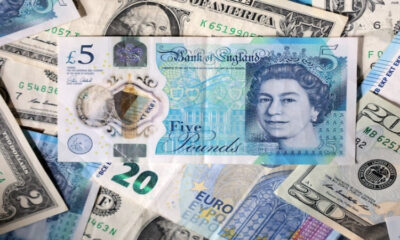Latest News
King Charles Addresses Parliament: Key Takeaways from the Speech

King Charles delivered a significant address to the UK Parliament in October 2025, outlining his priorities and vision for the nation during a period marked by economic recovery, climate action, and social transformation. Analysts from BBC News, Reuters, and Bloomberg highlight that the speech emphasized unity, sustainability, and innovation, providing guidance for policymakers, business leaders, and citizens. Observers noted that the King balanced ceremonial tradition with a forward-looking agenda, reinforcing the monarchy’s relevance in contemporary governance.
Economic Outlook and Policy Support
A key theme of King Charles’ address was economic stability and growth. He acknowledged recent challenges, including inflation fluctuations, post-pandemic recovery, and global market volatility, while emphasizing the importance of supporting small and medium-sized enterprises (SMEs) and fostering innovation. Analysts suggest that his focus on entrepreneurship, technology adoption, and workforce development aligns with government initiatives such as the 2025 Budget and innovation funding programs.
The King underscored the role of fiscal prudence combined with strategic investment, advocating policies that balance economic growth with social equity. Observers note that this emphasis resonates with both domestic investors and international stakeholders seeking a stable UK economic environment.
Sustainability and Climate Commitments
Sustainability was a prominent element of the address. King Charles highlighted the UK’s commitment to net-zero emissions, green energy adoption, and sustainable urban development. Analysts from the British Climate Council and Reuters emphasized that the speech reinforced ongoing government policies, such as incentives for renewable energy, eco-friendly construction, and green finance initiatives.
He also called on businesses and citizens to actively participate in climate action, noting that collective responsibility is essential to meeting environmental targets. Analysts suggest that this focus may influence investment strategies, encourage ESG compliance, and accelerate adoption of sustainable practices across industries.
Innovation, Technology, and Digital Transformation
King Charles highlighted innovation and digital transformation as central to the UK’s global competitiveness. Analysts note that he emphasized the need to invest in artificial intelligence, fintech, green technology, and research and development. By encouraging collaboration between academia, industry, and government, the King reinforced the UK’s position as a hub for technological advancement and innovation-driven growth.
Digital skills development, reskilling programs, and support for emerging tech startups were underscored as priorities. Analysts suggest that these initiatives align with broader strategies to enhance workforce adaptability, foster entrepreneurship, and attract international investment.
Social Cohesion and Inclusivity
The King addressed social issues, advocating for inclusion, equality, and community engagement. Analysts from BBC News highlighted that he emphasized educational access, support for underrepresented groups, and policies promoting social mobility. The address reinforced the monarchy’s role as a moral and civic guide, complementing government programs aimed at bridging inequality and fostering cohesion.
King Charles also underscored the importance of civic responsibility, encouraging citizens to engage in volunteerism, local initiatives, and public service. Analysts suggest that this approach resonates with contemporary audiences, particularly younger generations, and reinforces a narrative of shared national responsibility.
Foreign Relations and Global Standing
The speech touched on the UK’s role in international affairs, emphasizing diplomacy, trade, and global collaboration. Analysts from Reuters and Bloomberg note that King Charles reaffirmed commitments to maintaining strong relationships with EU partners, Commonwealth nations, and key global markets. He highlighted the importance of trade, sustainable development partnerships, and innovation-driven economic diplomacy.
Observers suggest that the address signals continuity in foreign policy, with an emphasis on leveraging the UK’s cultural, technological, and financial assets to enhance international influence and collaboration.
Key Takeaways for Policymakers and Business Leaders
Analysts identify several actionable themes from the King’s address:
- Economic Prudence and Innovation: Support SMEs and startups while investing strategically in technology and R&D.
- Sustainability and ESG Compliance: Accelerate adoption of green practices across industries.
- Workforce Development: Prioritize reskilling, digital literacy, and education to meet the demands of a technology-driven economy.
- Social Cohesion: Promote inclusivity, equality, and civic engagement to strengthen communities.
- Global Leadership: Leverage trade, diplomacy, and cultural influence to maintain UK’s global standing.
These themes are expected to influence government priorities, corporate strategy, and public discourse in the coming year.
Public Reception and Media Analysis
The address received widespread coverage across UK media outlets, including BBC, Sky News, and Financial Times. Analysts note that public sentiment has been largely positive, with appreciation for the King’s measured tone, emphasis on unity, and forward-looking agenda. Social media engagement highlighted strong support among younger demographics, particularly for innovation, sustainability, and social inclusion themes.
Critics have noted the ceremonial nature of the speech but generally acknowledged the clarity of the priorities outlined. Analysts suggest that the address serves both as a symbolic reinforcement of monarchy’s role and a practical guidepost for policymakers and business leaders.
Future Implications
King Charles’ address is expected to shape national discourse and inform government and business strategies throughout 2025. Analysts predict continued focus on sustainable investment, digital transformation, SME support, and workforce reskilling. The emphasis on social cohesion may influence education, housing, and public service initiatives.
By signaling priorities across economic, environmental, and social domains, the King’s speech provides a framework for coordinated action, encouraging public, private, and civic sectors to align efforts in achieving national objectives.
Conclusion
King Charles’ address to Parliament in 2025 reinforces his role as a unifying figure and highlights the monarchy’s relevance in guiding national priorities. Analysts conclude that the speech balances tradition with contemporary challenges, emphasizing economic resilience, sustainability, innovation, and social cohesion. For policymakers, business leaders, and citizens, the address provides insight into areas of national focus and sets expectations for collaboration, responsibility, and progress. As Britain navigates economic recovery, technological change, and social transformation, the King’s vision offers both guidance and inspiration for shaping a resilient and forward-looking society.






















